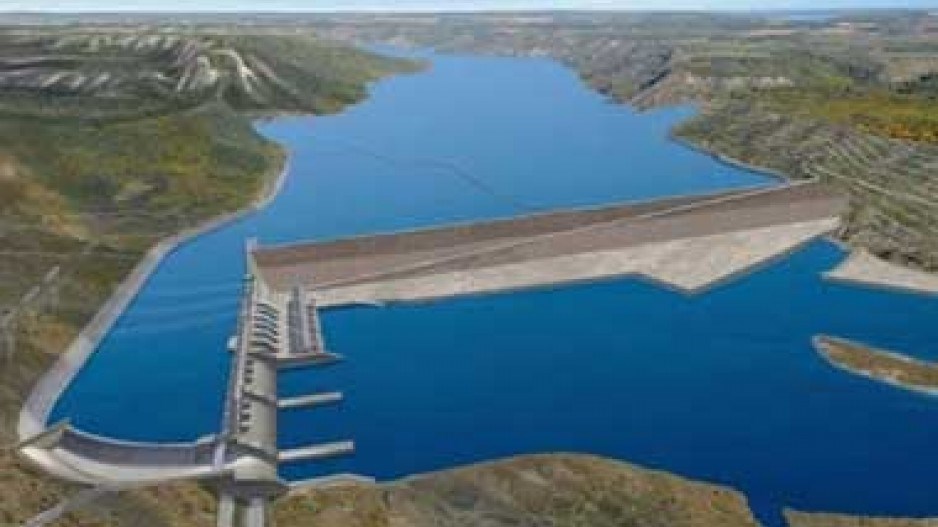The recent federal and provincial environmental approval of BC Hydro’s Site C dam in northeast B.C. has electrified real estate development in Fort St. John, the closest community to the projected $7.9 billion megaproject on the Peace River.
“A lot of buildings were already going ahead,” said Mitch Collins, a Century 21 owner-broker realtor in Fort St. John, “but this decision will speed things up.”
Collins said there’s widespread belief in the community of 26,000 that Site C will clear any remaining development hurdles, which include meeting 157 conditions and receiving final approval from the B.C. government.
Fort St. John and neighbouring Dawson Creek had already been attracting Lower Mainland developers and investors due to the strength of the local natural gas-fired economy.
The scale of current real estate projects is impressive, embracing industrial land, commercial buildings, rental housing and the largest mixed-use development ever seen in the city.
Led by Vancouver developer Gerry Olma, the North Point development will include housing, big-box retail and other commercial real estate in a 220-acre parcel within the city limits.
North Point’s 56-acre first phase has already been sold at $600,000 per acre, and Collins said 142 duplex lots sold for $150,000 each on 22 acres that were spun off for multi-family housing.
Vancouver-based PC Urban bought Fort St. John’s Co-Op mall last year for $10 million, and this summer leased up the first phase, in what is now known as the PC Mall.
In April, Burnaby-based Bosa Developments bought the Dawson Creek Mall for $5.5 million. The mall, which is about a one-hour drive from Fort St. John, is undergoing a major renovation.
Meanwhile, Richmond-based Cape Construction is building twin 76-unit rental apartment projects in Fort St. John. Construction on the first building is already underway; the second is expected to start shortly.
Collins noted that Fort St. John already has about a 1% rental vacancy rate, and Site C dam is expected to result in demand for at least another 1,200 housing units.
“And then you have the spinoff of all the suppliers and private contractors,” he said.
Approximately 400 units of rental housing are being built in the city.
A 4,000-person workforce is expected for Site C construction over a seven-year period. BC Hydro plans to build two large work camps near the Site C site, but Collins said the close proximity of Fort St. John means many workers will prefer to live in town.
A shortage of industrial land – BC Hydro is said to have bought up more than 200 acres – has pushed values to record levels. Serviced industrial land with highway access is selling for between $300,000 and $500,000 an acre. “This is up at least 15% from last year,” Collins said.
Site C’s concurrent federal approval decision from Minister of Environment Leona Aglukkaq contains 80 legally binding conditions on BC Hydro if the province and utility decide to build the 1,100-megawatt hydroelectric dam. Provincial approval contains 77 conditions, mostly related to community benefits.
But Collins said Fort St. John realtors are now awaiting “the real big decision”: the expected approval of B.C.’s first liquefied natural gas (LNG) plant.
Pacific NorthWest LNG, led by Malaysia-based Petronas, is expected to decide on its $11 billion project later this year.
“Now that would be big news,” Collins said, “much bigger than Site C.”




